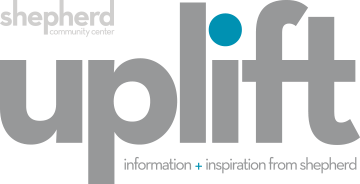From hunger to health care, childcare to school readiness, many families in Indiana are struggling to meet their children’s needs, especially as the cost of food, housing and other essentials has rapidly accelerated.
The Annie E. Casey Foundation recently released its annual ranking of states based on children’s quality of life. This year, Indiana ranked in the middle of the pack – 24th among the 50 states, the District of Columbia and Puerto Rico in terms of overall economic well-being, education, health, and family and community.
It was Indiana’s best showing in the annual Kids Count ratings in more than 10 years, but the numbers, especially in regard to health and family and community strength, still leave plenty of room for progress.
“I remember a conversation with a child named James, who asked if we could stay open over Christmas break,” Shepherd Community Center Executive Director Jay Height said. “I asked him why, and he said because he would go hungry over Christmas if we closed. James’ story isn’t unique. Many of our kids get breakfast and lunch at school, and they would go hungry on weekends and at Christmas break and spring break if we didn’t help. So that’s why we put together boxes of nutritious food that we send home with kids on Fridays and before breaks from school.”
Many of Shepherd’s programs are built around supporting and uplifting families, including job training for adults and teens, high quality childcare, and education opportunities like Shepherd Academy.
In 2020, Shepherd launched Neighborhood Childcare at Minnie Hartmann in partnership with Near East Area Renewal to ensure that families had access to safe and affordable care for children while parents are at work.
Height noted that Minnie Hartmann goes beyond simple childcare; the center also is preparing children academically and socially for enrollment in kindergarten and beyond.
“Our 4-year-olds take a state test for kindergarten readiness, and this past year, 10 of our 16 kids passed,” Height said. “We know that the kids who passed had been in our program since the beginning, and we know that the more we can invest in them earlier the more likely they are to succeed in school. Research from Rutgers University found that early learning is the greatest way to bring equity to education. So, we want to help them get a good start.”
Height said Shepherd also is helping near Eastside families by paying childcare workers and other community center employees a living wage with good benefits.
“We want to make sure that we’re helping our own folks,” Height said. “The vast majority of our staff at Minnie Hartmann are moms who came through our programs. We’re helping them get state certifications and then an associate degree and ultimately a bachelor’s degree.”
Breaking the cycle of poverty means investing time and resources in one child, one family at a time. It’s an investment that can pay remarkable dividends.
“I was driving one of our students to college years ago, and I asked him why he was on his way to college when his best friend was living on the streets. He said, ‘You know, Jay, I gave up on myself. But so many people at Shepherd didn’t give up on me. I couldn’t let them down.’ It wasn’t one person who made a difference. It was multiple people. That’s what Shepherd tries to do – convene multiple people to invest in kids’ lives. I’ve often said every kid is going to be mentored. The question is by who? The streets or the church?”




